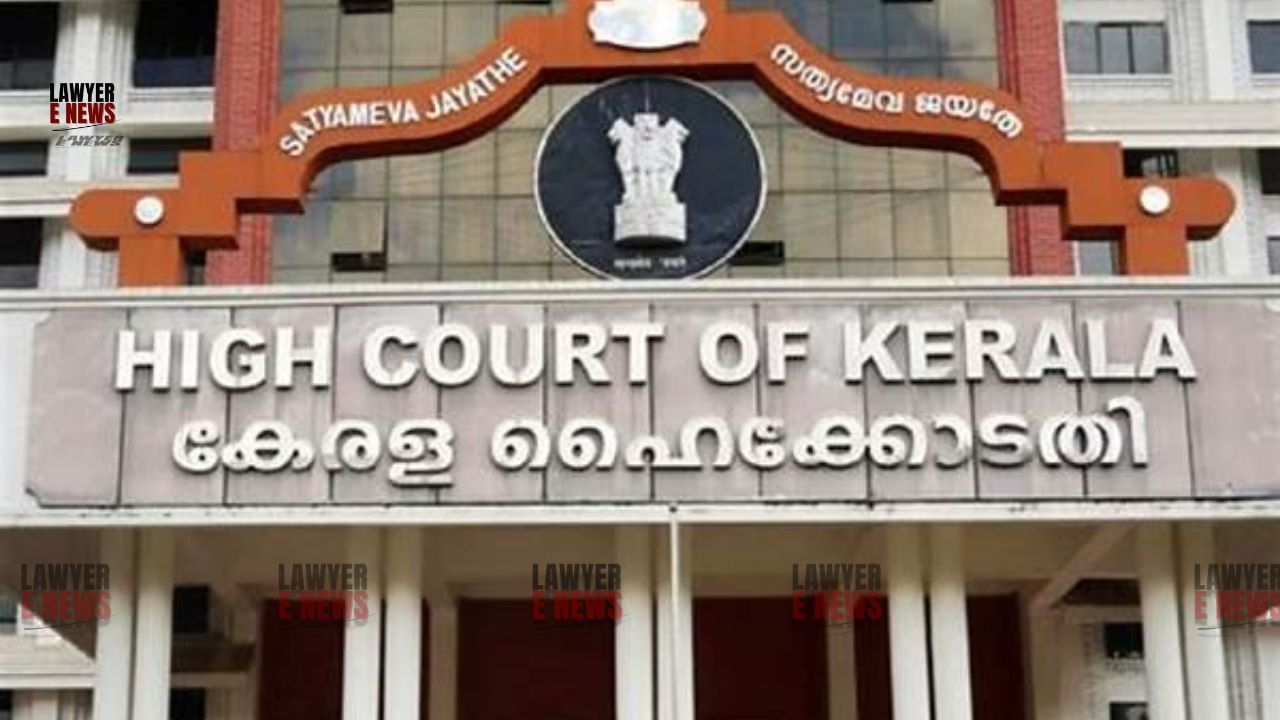-
by Admin
15 February 2026 5:35 AM



Kerala High Court at Ernakulam, led by Justice A. Badharudeen, quashed criminal proceedings against three accused, including a primary accused who married the alleged victim, now an adult, following a consensual settlement. This case involved allegations under Sections 376(2)(n) and 450 of the IPC, as well as Sections 6(1) and 5(j)(ii)(l) under the Protection of Children from Sexual Offences Act (POCSO). The court ruled that, despite the gravity of the charges, unique family and child welfare considerations justified quashing the case.
The charges stemmed from events in April 2019, when the first accused was alleged to have engaged in a sexual relationship with a minor girl following their engagement, resulting in pregnancy. The prosecution claimed the second and third accused (the parents of the first accused) failed to report the incident to authorities, further complicating the legal landscape. In response to the accusations, the defense argued that the first accused later married the victim in March 2021, and they now live together with their child as a family, providing a stable environment for the child. Both parties presented a joint request for quashment based on this new context, submitting a marriage certificate as evidence of the union.
Justice Badharudeen weighed the complex intersection of societal protection laws against evolving circumstances and individual family dynamics. The court noted that while offenses under the IPC and POCSO typically cannot be quashed due to societal implications, the High Court retains discretion under Section 482 of the Code of Criminal Procedure. Established legal precedent emphasizes that heinous crimes—especially those involving rape, mental depravity, or societal harm—generally warrant continuation of prosecution even if the victim consents to settlement, as upheld in cases like State of Madhya Pradesh v. Laxmi Narayan & Ors. and Gian Singh v. State of Punjab.
However, Justice Badharudeen acknowledged that absolute adherence to these principles could, in exceptional cases, jeopardize family welfare, particularly when ongoing litigation risks the stability of a family now cohabiting peacefully. Emphasizing humanitarian considerations and child welfare, the court observed, “The tough nut stand in the way of settlement shall be crushed with humanitarian consideration as the hammer, so as to ensure the peaceful family living of the parties and most importantly to ensure the well-being of the children born to them.”
Family Stability and Child Welfare: The primary motivation behind quashing was the desire to secure a harmonious family environment for the child, whose upbringing could be disrupted by ongoing litigation against one or both parents. This rare departure from conventional judicial caution highlights the court’s sensitivity to cases where punitive measures might do more harm than good for vulnerable family members.
Unique Circumstances of the Case: Despite the charges' gravity, the court found that the adult parties’ marriage and the stable family unit they had since created warranted a compassionate deviation from strict legal protocol. The judge remarked that in such exceptional cases, legal rigidity could be counterproductive to achieving justice in a broader, humanitarian sense.
The Kerala High Court’s decision in Crl.M.C. No. 4349 of 2022 sets a nuanced precedent, showing that while protection laws like POCSO are essential safeguards, courts may exercise compassionate discretion in family-oriented cases where settlement aligns with child welfare and marital stability. In this case, the court balanced the sanctity of legal principles with the unique circumstances, underscoring the judiciary's role in delivering justice that supports—not hinders—human dignity and family integrity.
Date of Decision: November 7, 2024
